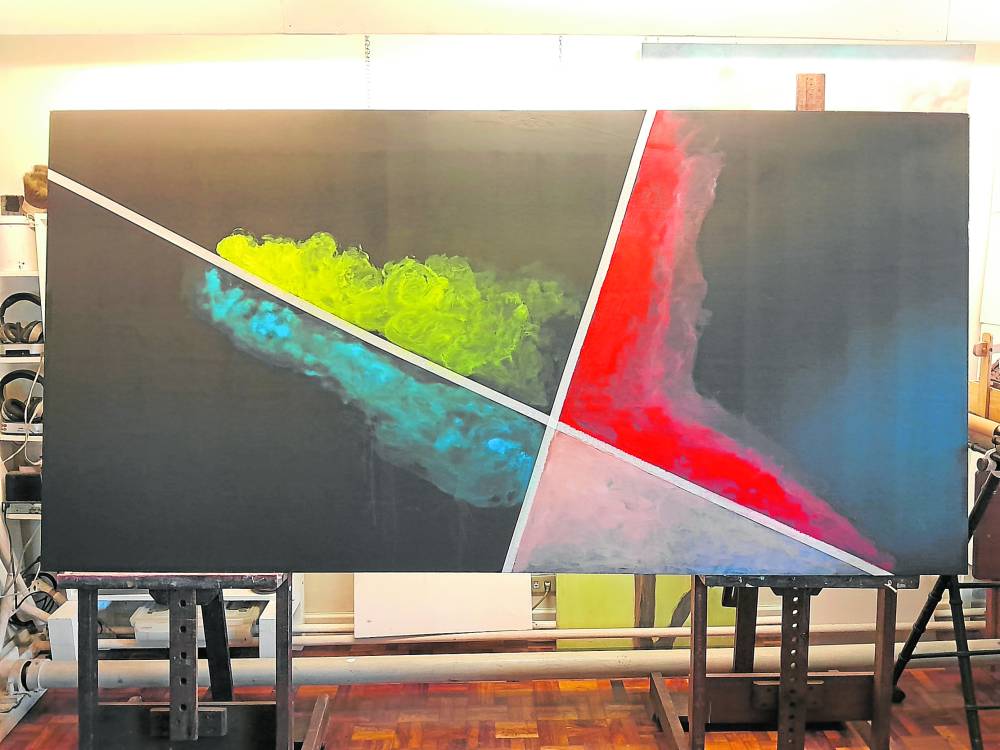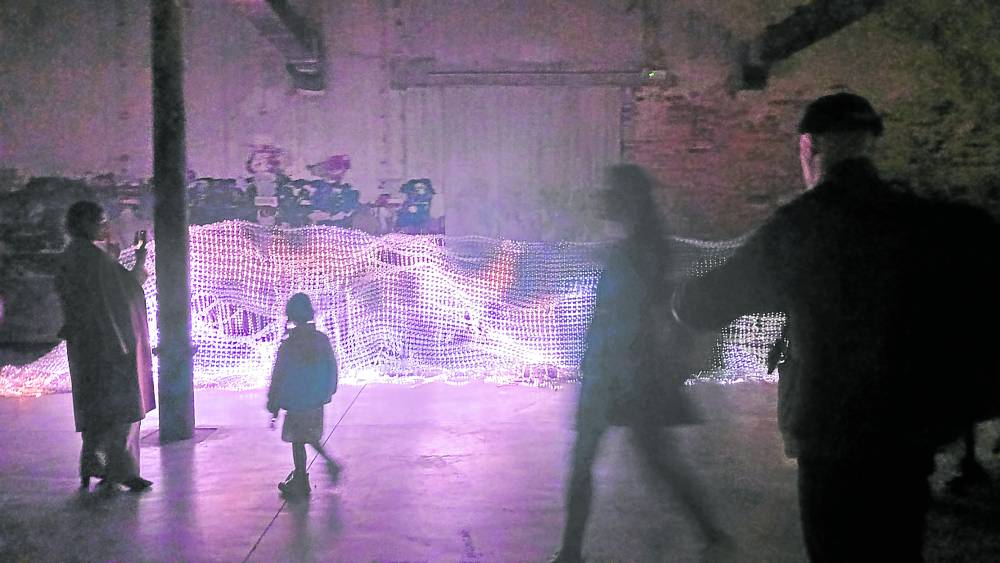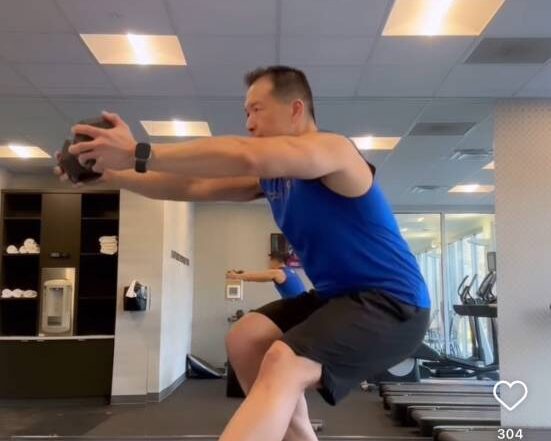
“I can no other answer make but thanks,
And thanks, and ever thanks.”
—William Shakespeare, “Twelfth Night”
SIR WILL’S two lines served as both text message and virtual hug sent to my family and friends, days following my discharge from the hospital after an involuntary stay of 15 days.
I had overdosed on my prescription and other psychiatric meds after some nights of trying to fall into a deep sleep that would restore and refresh me in the daytime.
Unsuccessful, I turned desperate without anyone noticing that, again, I was engaged in a tough struggle with this resident beast in my being called depression.
Introspection
While writing this piece, I stopped to text Inquirer Lifestyle’s S contributing editor Chit Roces Santos, half in jest, just to confess that the introspection required of this exercise was “killing me slowly.” Slow-motion movements and thinking came in the aftermath of a detox period, so those used to my almost daily blogging suddenly were texting or asking why I had been scarce online.
I was recovering a day at a time in my mom’s house. There were four generations of us under her roof: she, at 87 going on 88; me, who turned 60 in the ICU; Kimi, who also turned 30 in June; and Kai, 4 years old in April. Love, the Great Healer.
When Chit learned that there was this many of us in Pasig, she asked, “Where does Rolly (my husband of 31 years on July 26) sleep?” I couldn’t come up with a witty reply, so I left the cell phone alone for a time.
Then I made my slow way to an answer: “He’s back in Baguio where he runs Inquirer’s Northern Luzon Bureau. He’s working hard again for my next hospitalization.”
I tried out this line with my attending psychiatrist, Imelda Batar, and she threw her head back and laughed. Dr. Batar and I were discussing something when the subject of why Rolly left so soon, immediately after we checked out of the hospital June 30, came up.
(It should have been June 28, but my blood pressure was fluctuating. I continue to count June 28 as my personal Resurrection Day.)
Goodbye to being asked perennially by three shifts of nurses how many times I had peed or defecated, how much drinking water I had consumed, if I could walk without assistance to the toilet or bathe myself, etc. And they wonder why my BP was elevated despite my maintenance meds?
I began to miss the male midwife (contradiction in terms?) who used to attend to me downstairs at the ICU. We’d chitchat while he changed my adult diaper. “Mommy, wash natin yung flower mo, ha?”
He was quite sweet as he asked, too, what I did for a living. When he learned that teaching and having a husband supported the writing, he admitted that he flunked the licensure exams for elementary teachers. His first love is teaching, but it seems the love isn’t mutual, so there he was gently taking care of me and doing Ikebana on the lower part of my body.
Ticking time bomb
When you’re in the communication profession and fulfillment depends on the clear stringing of words together, the prospect of losing the ability to write or express oneself in some form is frightening.
And when your mind-spirit is housed in a rapidly aging body that isn’t refreshed by a few hours of sleep or rest, you’re a ticking time bomb.
I was losing my taste for composing prose because I was also steadily losing the ability to summon the names of people and things, the verbs to go with what nouns.
For a time, I could only manage to write haiku and joined a Google Plus community so that I could force myself into some kind of structured writing. I stuck to one three-line, five-seven-five syllabic verse at a time, accompanied by pictures of blooms, greenery and still life—images captured by my camera during morning walks in Baguio.
And so, on June 15 I fell from bed in my mother’s house.
Mommy, poor Ma who has never looked more frail but is actually stronger spine-wise than Wonder Woman, found me unconscious and called the attention of my brother, an ophthalmologist and EENT, who was engrossed in an NBA game on TV.
How he managed to carry all 170 pounds of me, he hasn’t told me yet. But when I awakened from almost two days of continuous sleeping, I was told that I ended up in the ICU, where I stayed for over a week. I awakened to find myself unable to speak because I was still breathing through a ventilator, attached to so many medical contraptions and tubes.
Both my hands were tied to opposite sides of the bed railings so I wouldn’t be able to remove any of these “life-giving” accoutrements.
More importantly I learned that Rolly, children Kimi and Ida, friends, including artist Aba Dalena with her guitar, came to talk, play music, hold my hand or sing to try to wake me. The doctors encouraged them. But no dice. I was Rip van Winkle or “Ripple Van Winkie,” as I later joked, dead to the world.
Choose to live
One evening I distinctly heard Inquirer Opinion editor Chato Garcellano call my name. Was it a waking dream, Chats? I opened my eyes, there was her face, bigger than it ordinarily is. Her brows were raised, her eyes squinting hard at me. Then I heard the words, “Choose to live” or “Choose life.”
It felt like a command from the Mother Superior. Then I, the problem that couldn’t be solved by her and the other nuns, drifted off again to slumberland.
My niece Jaja Jorge Susi guided my grandnephew Jared through his bedtime prayers. “His prayer was simple: ‘Dear Papa Jesus, please pray for everyone. And for Baba Boobeth for her to get out of the hospital already.’”
(Booboo Babeth is what the grandchildren call me, including my own Kai who, when I was moved to a private room, barged into it, demanding an answer to her question: “Booboo, what happened?”)
When I finally woke up and could recognize faces of visitors, I waved from my bed through the glass windows dividing where I was half reclined from them—photographer Tita Velasco Lim, journalists Avigail Olarte and Yvonne Chua, Rolly’s former student Tina Arceo-Dumlao, Mercy Fabros with Jenny Llaguno, ladies of First Draft Chit Roces Santos, Lorna Kalaw Tirol, Edna Manlapaz, Karina Bolasco, Gilda Cordero Fernando and Mariel Francisco, sculptor Julie Lluch who insisted on singing “My Funny Valentine” as her birthday gift although my neurologist Edmundo Saniel was already waiting impatiently outside.
Rolly brought me my cell phone to read the get-well, get-whole messages.
Cut to the quick
The one from Linc Drilon cut me to the quick (as caregiver to an ailing child, he couldn’t visit), but I was perhaps suffering from dehydration, too, so I couldn’t shed tears even if I wanted to: “Maybe Rolly or the kids can read this to you. You have championed many causes and helped others to endure and cope. You have averted many losses and taught us all to believe and hope. Rest now and extend the length of your services greatly. Rest now, my friend, you deserve long periods of renewal. Enjoy your respite.”
Friend Anna Leah Sarabia, feminist and activist for life, brought a transistor radio, her birthday gift, so I wouldn’t get toxic from too much TV in the regular room.
She texted Risa Hontiveros, newly appointed as Philhealth director, in a series of messages: “Good a.m. Risa. The daughter of friend, Babeth Lolarga, would like to make an appeal to you regarding benefits for her mother. Babeth has been receiving treatment for bipolar disorder and recently had to be hospitalized. She said Philhealth makes no consideration for mental health patients. They got almost zero in return.
“Do you think that you can now, as director, make a review of this policy? So many Filipinos suffer from mental health illness but it’s such a stigma that HMOs, insurance companies and even Philhealth tend to blame the patients.”
Risa responded quickly: “We’re actually reviewing this policy and are developing a mental health benefit package. Attended a conference on this recently. Please ask Kimi to e-mail me so I can follow this up. Thanks, too!”
That’s how it feels like when mental illness isn’t recognized as a killer illness because you can’t see it. It feels like you’re a rape or VAWC (violence against women and children) survivor, and you’re being told by the police that you must have done something to provoke a crime.
Hay naku! It’s as if you willed the ailment to happen so people dear to you can give you attention.
Heck no! Someone should render visually the roiling, swirling, soul-deadening darkness inside so that they (the HMOs, Philhealth, etc.) may believe.
Suicidal persons or those who complete suicides, in my opinion, are like stage 4 or 5 cancer patients, in the departure lounge of life. The thing is, the signs or “red flags,” as Dr. Batar calls them, aren’t well-telegraphed to those nearest and dearest.
In a longer prayer shared by Lorna, these are the lines I keep returning to, while summoning images of all of those who came in person or reached out via text or letters (handwritten or e-mailed): “Where there is self-doubt, release a renewed confidence. Where there is need, fulfill their needs. Bless their homes, families, finances, their goings and their comings.”
A younger cousin heard about the fall and opened a private message thread on his Facebook, and tagged cousins in North America to give them updates.
Cousin Mari Lolarga opened a thread with: “Babeth is now at The Medical City ICU. Seems like she had a mild stroke although Gigi says it’s still unclear. Please pray for her that she becomes well and strong soon.”
My youngest sister Gigi initially told them, “She’s still unconscious. We’re at the ICU of TMC. We’re still waiting for doctor’s prognosis… Mukhang bumagsak kasi there’s a lump/hematoma on her right area of forehead. Please pray for her that she regains consciousness.”
Kimi also texted medical bulletins on her smart phone: “Nanay is still in the ICU to undergo tests right now like 2D echo and EEG. She opened her eyes while Tita Embeng was talking to her, trying to look for her voice. Then she went to sleep again. Her vitals are stable and her MRI is clear. We’re still hoping for the best.”
Writing from Ontario, Canada, Rose L. Romero thanked Dennis, “our family doctor, for keeping close watch over your sister Babeth. She deserves the best care from you. You were her savior. I am sure Uncle Junior (my late father, also a doctor) was with you all the time even while he is in heaven.”
Dennis, who’s also on call at TMC, reminded the cousins in Manila that visiting hours were 9-11 a.m., then 5-7 p.m., and visitors weren’t allowed in the ICU. Updates from the family’s doctor sounded very technical, that I’ve had to Google some words, e.g., “Babeth’s sensorium is much better, no longer in coma, alert but still drowsy.”
Fragile
Henry Romero, an older cousin (I’m the eldest of eight children), a kuya to me, wrote: “Dear Babeth, I often recall your past blog about how mortal we are, and it has constantly reminded me of how fragile I am, too. I am happy that with all this wellspring of affection and prayers you will get the strength to bounce back. Now I’m confident you’ll have more birthdays to enjoy and that we’ll continue to bask in your presence.”
The most melodramatic reaction came from my sister Embeng, the sister born to mom 14 months after she gave birth to me. I forced myself out of my drugged and drowsy state while she said tearfully, “Don’t do that again. If you’re sad and the sadness won’t go away, call me. Don’t leave me to tend to our six brothers and sister—I may not be up to that responsibility. You could’ve died, you could’ve ended up a vegetable. Call me when you’re sad.”
Later, she promised to take me to Haru, sister restaurant of Café Juanita, in our Kapitolyo neighborhood, for platters of assorted sushi. Sissy (our pet name for our sisters), it’s Haru time!
Jonathan Gunson once tweeted: “It’s in the moments of your decisions that your destiny is created.”
On the brighter side, after losing the kilos of blubber (from the intravenous feedings and superficial scars on my tongue that made eating solids a Calvary), I may now be able to fit into a rash guard when I go swimming one weekend.
As for people I’m occasionally frustrated with, especially the ones nearest and dearest to me, Bobbie Malay texted these no-nonsense words: “Hindi na masyadong mababago. Tanggapin na lang natin at mahalin ang weirdness ng isa’t isa!”
But me being me, let my weirdness end with something lyrical, lines from poet Langston Hughes’ “Life Is Fine”:
So since I’m still here livin,’
I guess I will live on.
I could’ve died for love—
But for livin’ I was born.
The author is back to teaching 11th and 12th graders English composition, grammar and literature, and an elective on creative writing for 9th and 10th graders at a progressive school in San Juan City.
She is editing a book manuscript about a legendary piano teacher from the Philippines who once was the classmate of pianist Martha Argerich.
She is a culture volunteer helping promote the Philippine premiere of Rossini’s comic opera “La Cenerentola” (Cinderella) on Aug. 15, 8 p.m. at Meralco Theater, Ortigas Center, Pasig City, with an international cast led by Maestro Darrell Ang, who will conduct the Manila Symphony Orchestra. Karin Mushegain plays the title role, while Arthur Espiritu plays Don Ramiro.
All proceeds from the concert are going to the Juan Lanuza Endowment Fund for Advance Vocal Studies. Call Ticketworld at no. 891-9999 or Cultural Arts Events Organizers at 9979483, 7827164, 0920-9540053, 0918-347-3027. CAEO can schedule ticket delivery for free.









































